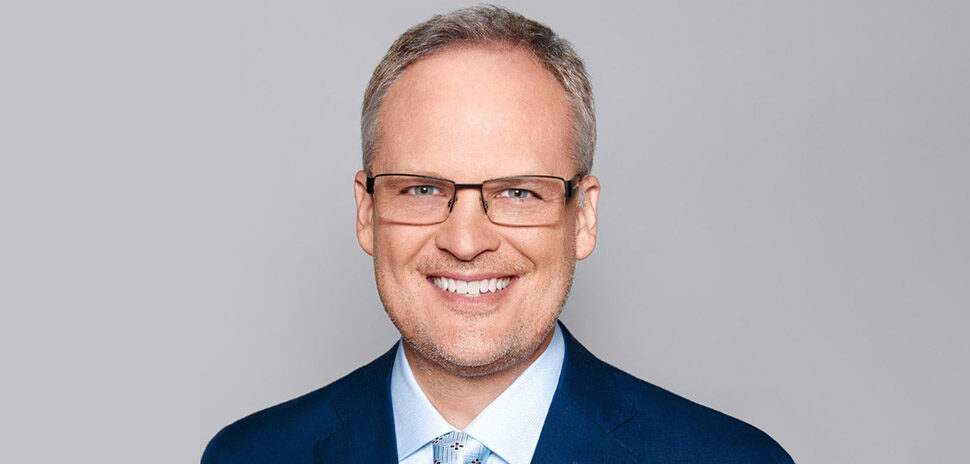The latest milestone in Hedera Hashgraph’s evolution completes the foundation of Swirld’s co-founder Leemon Baird’s vision for the public ledger platform. The mathematician and computer scientist set out to enable “shared worlds” where people can “gather, collaborate, conduct commerce, and control their own online footprint.”
Now backed by some of the world’s biggest enterprises and organizations, Hedera plans to open the source code for Hashgraph.
It’s a move that could speed development and expand the number of contributors exponentially.
The company’s governing council—composed of 25 organizations including IBM, Google, Boeing, and Tata Communications—voted to buy the IP rights to the proprietary Hashgraph consensus algorithm from Swirlds Inc, a founding member of the council. Baird developed the Hashgraph code at Swirlds, which retained the rights to the intellectual property.

Leemon Baird [Courtesy of Hedera]
“With the completion of V1 of the network code, open-sourcing of the Hashgraph algorithm, and an engaged council making key decisions about the future of the network, the foundation of that vision is complete,” Baird said in a statement.
The next challenge, he says, “is for the broader community to develop products and services beyond the Layer 1 protocol … and to enable others to leverage the power of the Layer 1 protocol to create value.”
“Swirlds is the best place for us to work on that, while fostering an ecosystem where all can participate equally,” he said.
Mance Harmon is named Swirlds CEO

Mance Harmon [Courtesy of Hedera]
As part of the purchase, Richardson-based Hedera Hashgraph’s development and management teams and related personnel will move to Swirlds with Hedera CEO Mance Harmon, who will serve as CEO. Baird, who is currently chief scientist at Hedera Hashgraph, will serve as CTO.
Baird will also continue to serve as co-chair of the Hedera Council’s Technical Steering & Product Committee. Natalie Furman will lead legal at Swirlds and continue to participate as a member representative in the Council’s Legal & Regulatory Committee.
Growing demand
“We believe now is the time to enable the fastest adoption possible of the Hedera network, to capitalize on growing demand for public DLT,” said Scott Thiel, partner at DLA Piper, one of the original Governing Council members, in a statement.
Thiel says the vision “has always been for Hedera to be a council-member driven organization, enabling the most decentralized governance and therefore broadest-reaching public network on the market.”
Hedera governance updates to accelerate development
The Hedera Governing Council and Swirlds entered into an agreement to outsource several essential services to Swirlds to allow the council to focus on core network governance, industry standards, public policy, and treasury management.
The Governing Council made a commitment to make the hashgraph algorithm code open source under Apache 2.0 license in 2022 to enable broader community participation, accelerate its development, and expand the number of contributors.
According to Hedera, technical controls are in place to ensure the network can’t be split, meaning hashgraph patents will no longer be necessary to defensively protect Hedera ecosystem participants.
A Hedera Hashgraph primer
Hedera’s public network is designed to be secure, scalable, and both faster and more cost- and energy-efficient than similar solutions.
It’s a distributed ledger technology, but it doesn’t use a blockchain.
Hedera is based on a “hashgraph,” a consensus algorithm that tracks time-stamped transactions between network nodes. These transactions are tallied by their position in transaction orders, a key difference from blockchain which contextualizes transactions by position in relation to the blockchain. Another differentiator: Hashgraph transactions are only sent for confirmation by active network nodes, rather than all network nodes, improving scalability and saving both time and energy.
The tech has a number of use cases, from its own cryptocurrency called HBAR to NFTs to practical business applications like enabling safer long-distance drone travel, leveraging international stablecoins, and powering healthcare apps.
Hedera says its network is the most used enterprise-grade public ledger for the decentralized economy. Its Governing Council is a roster of international companies and organizations including: Avery Dennison, Boeing, Chainlink Labs, Dentons, Deutsche Telekom, DLA Piper, EDF (Électricité de France), eftpos, FIS (WorldPay), Google, IBM, the Indian Institute of Technology (IIT), LG Electronics, Magalu, Nomura Holdings, ServiceNow, Shinhan Bank, Standard Bank Group, Swirlds, Tata Communications, University College London (UCL), Wipro, and Zain Group.
Practical implications
The intellectual property rights purchase by the Hedera Governing Council comes at a time when the council is expanding the Hedera ecosystem and HBAR—the Hedera public network’s cryptocurrency—economy. The council, which has grown from an original five members to the current 25, and its members participate in operating network nodes, governing the network, and recruiting new members.
“Achieving V1 of the Hedera network code is an important milestone for the council and community, providing a robust network for anyone, anywhere in the world to build and deploy decentralized applications,” said Saiprasad Raut, co-chair of the council’s technical steering and product committee, in a statement.
Raut, who is chief technology advisor of Crypto & Emerging Business for Worldpay from FIS, says making the underlying hashgraph algorithm open source “will ensure that network development continues to be collaboratively produced, shared freely, published transparently, and developed for the good of the community.”
That ongoing collaboration of council members “gives us the best structure to facilitate exponential growth of the world’s most advanced public ledger infrastructure,” he said.
Hedera Hashgraph wins two awards from Tech Titans
Locally in Dallas-Fort Worth, people are certainly taking notice of Hedera’s success. At the Tech Titans Awards Gala in Richardson Wednesday night, the company won two awards: Baird won the Technology Inventors award, while Harmon won the Emerging Company CEO award.
Want to know more?
Hedera will host a webinar on Wednesday, January 26 at 10 a.m. to further detail the Shared Worlds vision to be built on the Hedera network. Join at Hedera’s YouTube channel.
Quincy Preston contributed to this report.
![]()
Get on the list.
Dallas Innovates, every day.
Sign up to keep your eye on what’s new and next in Dallas-Fort Worth, every day.


































































